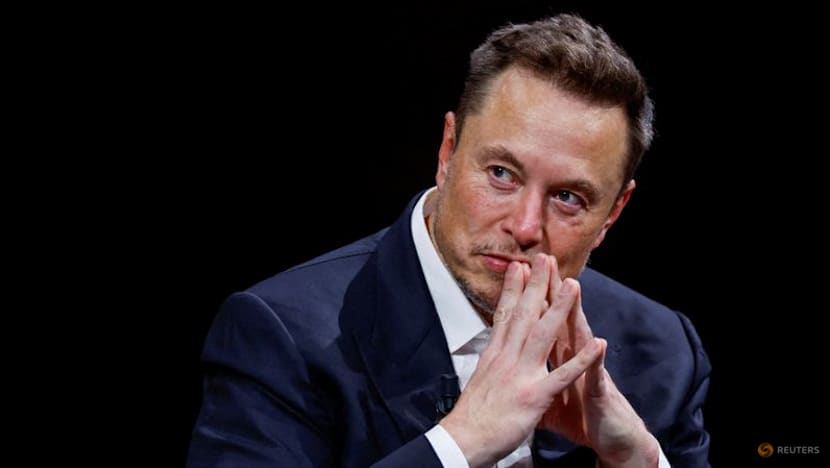Musk's Texas-sized US$1 trillion payday enabled by state's new law

Elon Musk, chief executive officer of SpaceX and Tesla, gestures as he attends the Viva Technology conference dedicated to innovation and startups at the Porte de Versailles exhibition centre in Paris, France, Jun 16, 2023. (Photo: Reuters/Gonzalo Fuentes)
WILMINGTON, Delaware: Elon Musk's blow-out US$1 trillion pay package from Tesla proves everything is bigger in Texas, especially under its new management-friendly law.
Last year, Tesla reincorporated in the Lone Star State after a judge in its former corporate home, Delaware, ruled a US$56 billion compensation for the CEO was "unfathomable" and unfair to shareholders. Musk urged companies to ditch Delaware and his board worked on a new pay package.
Freed from the constraints of Delaware's widely used corporate law, Tesla has super-sized the next pay deal for Musk, already the world's richest person. Despite increasing his pay nearly 20-fold, there is a better chance this package will be approved and a lesser risk it will be struck down in the courts, thanks to Texas's corporate law.
In addition, it would be harder for shareholders to challenge the independence of the two board members who developed the pay package.
Unlike the 2018 pay package, this time around Musk will be allowed to use his voting power, which is around 13.5 per cent, according to Friday's security filing. If recent history is a guide, that will lock in approval.
Last year, the company's shareholders voted to "ratify" Musk's 2018 pay package in an attempt to essentially undo the court ruling and restore Musk's pay package. Musk will be able to vote about 411 million shares at this year's shareholder meeting, nearly outweighing the 529 million shares that voted against ratification.
In the end, the ratification vote did not matter because the Delaware judge ruled it did not override her prior decision. That ruling and her ruling striking Musk's US$56 billion compensation are on appeal.
In 2018, the company barred Musk from voting his shares to make it harder for investors to sue under Delaware law.
Now Tesla does not need to do that because it has much better protection from legal challenges - the law in Texas, where it reincorporated last year.
"They are completely insulated from a shareholder lawsuit in Texas," said Ann Lipton, a professor at the University of Colorado Law School.
Tesla told investors last year in its pitch to approve its move from Delaware to Texas that laws in the two states were "substantially equivalent" and there was no reason to believe shareholders would have weaker litigation rights in Texas.
Things, however, changed in May when Texas lawmakers allowed companies to require shareholders to own 3 per cent of a stock before they can sue.
Tesla quickly adopted a 3 per cent bylaw. Musk is the only individual shareholder who meets that requirement. Vanguard, BlackRock and State Street do as well, but they are passive investors. Other investors could band together to reach the threshold.
By contrast, Delaware does not limit who can sue and many lawsuits are brought by investors with tiny stakes and the cases are overseen and funded by a handful of specialised law firms, which is a source of frustration to corporate boards. Richard Tornetta owned nine shares of Tesla when he sued over the 2018 pay package.
"We believe this bait-and-switch effectively was an effort to pull the wool over shareholders’ eyes," the New York State Comptroller said in a proposal in Friday's proxy statement.
The comptroller is asking Tesla shareholders to repeal the 3 per cent threshold at the annual meeting where shareholders will also vote on Musk's pay package.
Lipton said if shareholders do not like the pay package proposal, they still have an option. "Sell," she said.













